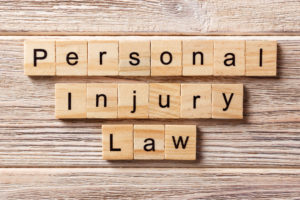 As an employee in Illinois, you can get compensated for any injuries you sustain at work via workers’ compensation. However, there are limits to how much you receive, and the amount depends on several factors.
As an employee in Illinois, you can get compensated for any injuries you sustain at work via workers’ compensation. However, there are limits to how much you receive, and the amount depends on several factors.
Limits of Liability
Commercial liability insurance policies have ‘limits of liability or a cap on the amount claimants can get. However, worker’s compensation is structured differently. It is the main reason why most employers purchase policies that do not offer the coverage they thought they did.
Workers’ Compensation Part A
Part A workers’ compensation covers employees under state laws and offers medical aid, death, rehab, and disability benefits for workers killed or seriously injured on the job. The insurance premiums are based on the employee’s wages and the nature of their work duties. The benefits are awarded on a no-fault basis, and the payments are made on predetermined schedules for definitive injuries.
Workers’ Compensation Part B
Part B workers’ compensation also offers the coverage mentioned above, but it only does if their condition results from their employer’s negligence. This is why it is also called employer’s liability coverage.
So we can say that while Part A fulfills state requirements, Part B covers additional damages beyond the former. These payments are based on injury type and limits. For example, if an employee is injured because of a workplace accident, they can get $100,000 max. If they are injured because of a disease caused by their work, they can get up to $500,000. The latter is often broken down into $100,000 per employee per injury.
Part B is rarely used, but it can benefit an employer’s company in some cases, especially if they are sued by survivors or family members of a deceased employee. They can also avail of Part B if they owe more in damages than Part A can cover. All companies in Illinois have to carry Part A workers’ compensation coverage and ensure all claims are paid on time without taking liabilities into account.
Workers’ compensation protects both employers and employees. It protects the latter by ensuring they do not go in the red if an injured employee or family sues them for damages.
How Long Can Employees Receive Workers’ Compensation?
The answer can differ from one state to the other. It can be anywhere from three to seven years. However, there is usually a limit on the length of permanent disability benefits. Most states terminate weekly ones when a claimant turns 65 years old.
In Illinois, wage differential benefits stop after five years or when you turn 67, whichever comes first. The state also has a comprehensive schedule that sets the maximum number of weeks you can get benefits per the body part you injured. If a body part is injured and not on the schedule, you can get a non-scheduled award that will amount to 60% of your average weekly wages. However, the total amount will depend on the severity of your injury.
Contact Robert Edens for Workers’ Compensation Claim Disputes Today
Thousands of people in Illinois and the nation are denied the workers’ compensation that they deserve. If your employer is doing the same to you, Cook County workers’ compensation lawyer Robert Edens can help. Contact the Law Office of Robert T. Edens for a free consultation with him.

 In Illinois and other states, workers’ comp insurance covers workplace injuries. If you were injured and your claim was denied, there may be several reasons behind it. You may feel as if you are out of options, but there are steps you can take to reopen your case.
In Illinois and other states, workers’ comp insurance covers workplace injuries. If you were injured and your claim was denied, there may be several reasons behind it. You may feel as if you are out of options, but there are steps you can take to reopen your case. An
An  Most Illinois employers have to pay their employee
Most Illinois employers have to pay their employee 

 The insurance company will do everything in its power to reduce your Workers’ Comp claim, and yes, that means you will be under surveillance. The primary purpose behind Worker’s Comp surveillance is to undermine a claim and the credibility of the injured worker. Here are some of the top tactics that you can expect from their investigators:
The insurance company will do everything in its power to reduce your Workers’ Comp claim, and yes, that means you will be under surveillance. The primary purpose behind Worker’s Comp surveillance is to undermine a claim and the credibility of the injured worker. Here are some of the top tactics that you can expect from their investigators: If you are not getting paid in full or at all for the hours you put in, you can sue your employer with the help of a skilled Waukegan workers’ compensation lawyer. Your rights as an employee are protected under the
If you are not getting paid in full or at all for the hours you put in, you can sue your employer with the help of a skilled Waukegan workers’ compensation lawyer. Your rights as an employee are protected under the  In Illinois, injured workers can receive worker’s compensation benefits as permitted by law and they also have the right to choose their own medical treatment. If they are not allowed to do so, they have every right to hire a worker’s comp lawyer in Waukegan and sue their employer or insurance company.
In Illinois, injured workers can receive worker’s compensation benefits as permitted by law and they also have the right to choose their own medical treatment. If they are not allowed to do so, they have every right to hire a worker’s comp lawyer in Waukegan and sue their employer or insurance company. When an individual begins to seek compensation for their injury and losses they often wonder whether to file a worker’s comp claim, PI claim, or both. A typical injury case gives rise to a personal injury case, however, when the same incident takes place at work, an individual must pursue a worker’s compensation case to obtain damages. This presents a question: should an individual seek a personal injury case, worker’s compensation, or both? Let’s check it out.
When an individual begins to seek compensation for their injury and losses they often wonder whether to file a worker’s comp claim, PI claim, or both. A typical injury case gives rise to a personal injury case, however, when the same incident takes place at work, an individual must pursue a worker’s compensation case to obtain damages. This presents a question: should an individual seek a personal injury case, worker’s compensation, or both? Let’s check it out.